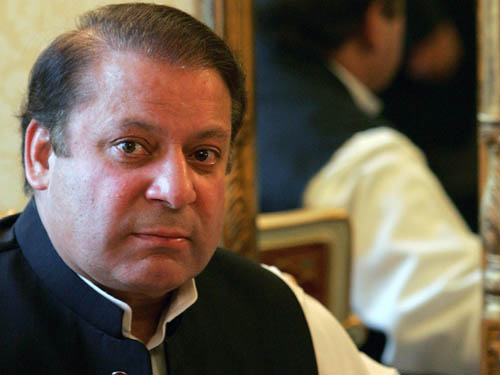
“The importance of education — and especially schooling — cannot be overestimated. Not only has the expansion of primary and secondary education been linked to accelerated economic growth, poverty eradication and improved income equality, but education also appears to be closely associated with social enrichment and inclusion, the upgrading of human capital, increased opportunities, and enhanced freedom and welfare.That is why, as Pakistan’s prime minister, I have placed universal access to education very high on the national agenda.
Education influences the way people perceive the world around them, understand issues, and find solutions to their problems.
It makes them more aware of their rights and duties and affects how they interact within their communities and with the state and its institutions. Above all, it enables them to think critically and question established wisdom, thereby enabling them to rise above prejudice, myth and restrictive historical legacies.
In this sense, education is a major driver of social progress. And it is the key to fulfilling my promise, made when I took office two years ago, to create a new framework for social change in Pakistan, one that ensures equal opportunities and social justice for everyone and stops the exploitation of the poor and harnesses their potential.
As the Oslo Summit on Education for Development approaches, I remain firm in my commitment to securing the right to a high-quality education for every child in Pakistan — especially for girls, who have long faced high barriers to education.
But there remain considerable obstacles to fulfilling that commitment. Indeed, nearly six million Pakistani children are currently out of school, and many more are not learning even basic mathematics or reading skills. Dropout rates are high.
And, perhaps worst of all, terrorists and extremists have been targeting schools, blowing up their buildings and threatening their teachers, particularly in the northern part of the country.
In a particularly tragic incident last December, terrorists attacked young students and teachers at a school in Peshawar.
I now reiterate the promise that I made after that attack. My government will not allow Pakistan’s schools — so vital to our country’s future — to become targets of terrorism. Education is the most important investment we can make in our most precious assets — our children — and we will not tolerate even the slightest threat to it.
Protecting schools from extremists today will help to stem the rise of extremism tomorrow.
Indeed, given the contribution of ignorance, lack of choice, and socioeconomic deprivation to the rise of extremism in parts of Pakistan and Afghanistan, ensuring that future generations have better education, improved capabilities, and more opportunities will ensure that the next generation will not become easy prey for terrorist organizations.
In addition to the risk that a few would be tempted by extremism is the certainty that, if we fail to meet our commitment to universal education, millions of children would be relegated to a life of poverty and struggle, with their hopes, dreams and potential squandered, undermining the country’s development potential.
More than half of Pakistan’s population is under the age of 25; theirs is the generation with the potential to drive progress and prosperity in the country — if, of course, they receive the education they deserve.
Given how unlikely it is that a free-market approach would lead to the equitable provision of education, my government has committed to increase the public resources allocated for education, which averaged only 2.4 percent of GDP from 2004 to 2013, to 4percent of GDP over the next three years.
Such funding will support the steps needed to fulfill the promise, contained in our country’s constitution, that the state will “provide free and compulsory secondary education within minimum possible period.”
Those steps include cooperation with provincial governments — which bear the primary responsibility for primary and secondary education in Pakistan — to devise a roadmap for universal enrollment.
In order to improve the quality of teaching and learning, we are working not only to expand facilities for teacher training, but also to draw more talented people to the profession by recognizing and honoring the service of teachers.
And we are investing in computers and other advanced learning tools to ensure that our children can compete internationally.
We have also launched several new initiatives to make education more widely accessible. One such initiative is the National Endowment Scholarships for Talent, which finances the education of poor students.
Finally, we are strengthening the institutional scaffolding of Pakistan’s education system. For example, we have created the National Curriculum Council, which will standardize school curricula throughout the country, while ensuring that they are consistent with national requirements and international benchmarks.
Reforms to the examination system are being introduced to complement this effort. My pledge is being turned into action. But my government cannot do it alone. To overcome the challenges we face and fulfill our promise to our children, we need active support from the international community.
The Millennium Development Goal (MDG) of achieving universal primary education was expected to reach its target this year; it has not. And so now is the ideal moment for the world to renew its commitment to education.
We must approach the Sustainable Development Goals, which aim to carry on the work of the MDGs, with a clear direction, a sense of purpose, and strong resolve.
For our part, we have created a SDG unit in our Ministry of Planning, Development, and Reform to coordinate their timely achievement. We hope that other countries will show the same commitment. For Pakistan, education is not merely a priority — it is a policy imperative.”
The writer is Prime Minister, Islamic Republic of Pakistan.









